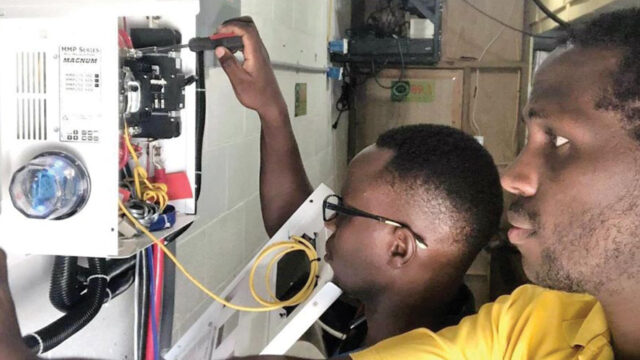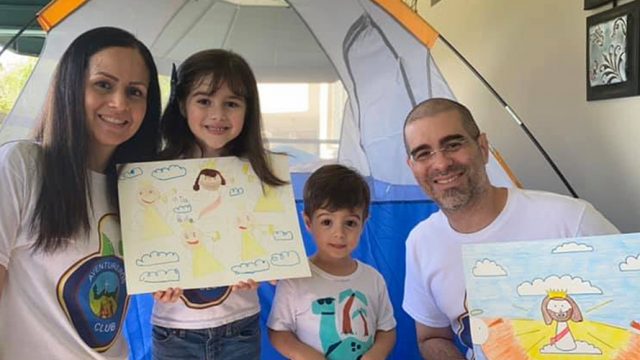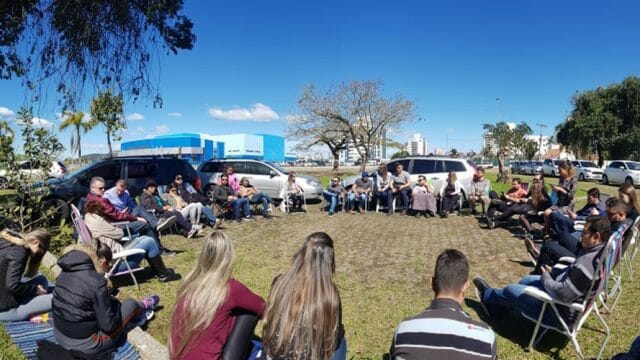Initiatives across multiple fronts are proving to be lifesaving, agency leaders say.

The Adventist Development and Relief Agency (ADRA) continues ramping up its emergency response across Lebanon and other Middle Eastern countries where ongoing political shifts and fragile ceasefire efforts are affecting vulnerable communities. The region continues to grapple with dire humanitarian crises, with thousands of lives lost and many others affected, particularly women and children.
Since the conflict’s escalation, the United Nations and local authorities estimate that more than 12 million people have been displaced across the region, with that number expected to rise in the coming months. In response, ADRA is leading efforts to provide urgent humanitarian aid, including food, shelter, education, and psychosocial support.
“ADRA is working closely with national and international partners to ensure a coordinated, effective response to the growing humanitarian crisis in the Middle East. The conflict, compounded by the region’s ongoing economic crisis, is severely straining basic services and deepening the needs of vulnerable families, children, and individuals. As we face the approaching winter months, ADRA remains committed to offering both immediate relief and long-term recovery, helping communities survive and rebuild their lives,” says Nagi Khalil, ADRA country director. “Our focus is on shelter rehabilitation, essential food and water distribution, and protection services while staying flexible to adapt our response as the situation evolves.”
Humanitarian Crisis Overview
According to the office of the United Nations High Commissioner for Refugees (UNHCR), more than 16 million people across the region are in urgent need of humanitarian assistance and protection. The combination of ongoing conflict and recent natural disasters has further shattered already fragile communities, pushing them to the brink. The crisis is especially dire with critical sectors such as education, health care, and water infrastructure suffering severe damage, exacerbating the vulnerability of affected populations.
Data show that nearly 1.5 million people are internally displaced, and about 95,000 refugees sought safety in Lebanon after fleeing other regions. At the same time, more than 7,000 schools have been destroyed or damaged, and more than 1,300 schools have been closed due to insecurity and destruction, leaving millions of children without access to education.
As regards health care, more than 133 health clinics and hospitals have been damaged or destroyed, and more than 40 percent of health-care facilities in the region are non-functional, leaving millions without essential medical care. Also, 36 water facilities have been damaged, affecting nearly half a million residents, while 13 million people urgently need access to water, sanitation, and hygiene services.
It was also reported that close to 200,000 people are living in 1,173 overcrowded shelters, many at full capacity. Additionally, 473,000 people have crossed into affected territories requiring urgent shelter, food, and hygiene support. Overall, more than five million refugees from some regions in the Middle East are currently residing in neighboring countries, including Lebanon, Turkey, and Jordan, further straining regional resources.
These figures are expected to rise as the crisis deepens, underscoring the urgent need for coordinated humanitarian efforts to address the escalating needs of displaced populations and affected communities.
ADRA’s Response in the Middle East
ADRA has been a vital presence in the Middle East, providing life-saving assistance to vulnerable populations for more than 20 years and following the devastation caused by the 2023 earthquakes. Despite recent security concerns and a temporary suspension of operations in some regions due to political transitions, ADRA is expanding its efforts.
The global agency continues collaborating with humanitarian partners to meet the most urgent needs of internally displaced persons (IDPs) and affected communities, focusing on food security, shelter, health care, education, water, and psychosocial support.
The agency’s key activities in the region include distribution of food to shelters, such as places of worship and schools hosting displaced families; and cards that allow vulnerable individuals such as the elderly, pregnant women, children under five, and people with disabilities to purchase food tailored to their specific needs. It also includes the delivery of food and materials for hot meals at local kitchens for families in need.
ADRA is also working on essential repairs at shelter facilities, improving living conditions and preventing disease outbreaks; providing cash assistance for families to repair damaged homes and support their recovery; and helping restore communal kitchens.
Leaders of the agency in the region also reported that ADRA is providing education and psychological support, including distribution of textbooks, uniforms, and educational kits. It is also organizing recreational activities for children and mental wellness sessions for parents.
Other activities include helping people prepare for winter by distributing blankets and warm clothing and supporting water network rehabilitation initiatives.
ADRA leaders said that the humanitarian needs in the Middle East are overwhelming. “Yet in the face of such immense challenges, ADRA remains unwavering in its commitment to help. With justice, compassion, and love, ADRA stands by communities struggling to overcome the devastating impact of the current crisis,” they said.
“ADRA is dedicated to helping those most affected by the current circumstances,” said Kelly Dowling, emergency response program manager for ADRA International. “We are deeply grateful for the support from donors, who empower us to deliver vital aid to communities in desperate need. Please keep Middle East communities in your thoughts and prayers as we continue to walk alongside them on their recovery journey.”
The original version of this release was posted by ADRA International.












